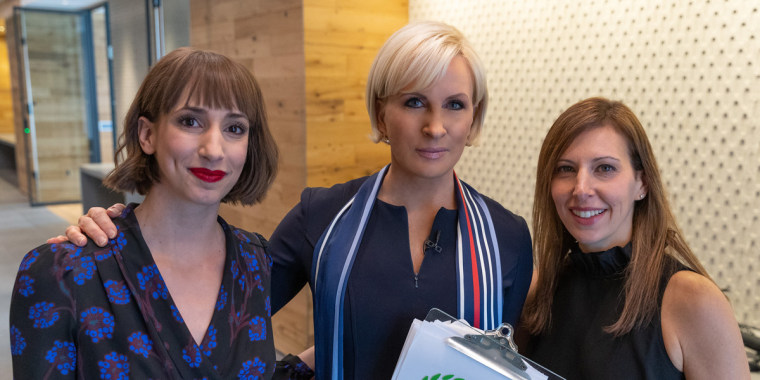With the average time spent on social media on the rise year after year, experts and researchers are cautioning against its dangers, especially for young people.
"It's an addiction,” said Dr. Gillian Galen, a clinical psychologist at McLean Hospital who focuses on mood disorders and self-destructive behavior. “And it's an addiction that is now socially acceptable."
Galen joined Know Your Value co-founder and "Morning Joe" co-host Mika Brzezinski and Cosmopolitan Editor-in-Chief Jessica Pels to talk about the science behind social media and the way it can impact a young person’s development.
“I think we're just starting to get the information about what's happening to people's brains,” Galen told Know Your Value. “We're seeing more depression. We're seeing more loneliness. We're seeing more anxiety. And we're seeing the need, the urge, sort of the desperation to be on social media to get the likes to the level that it’s affecting moods.”
Both Galen and Pels, whose brand reaches 80 million young people on social media, voiced concerns that kids aren’t being taught how to handle the deluge of information that’s constantly being delivered to their smartphones, including the mood-altering triggers of social media.
“What's interesting about my readership of young women is, they're used to absorbing content and information all the time,” Pels said, singling out the push notifications that keep many of her young readers informed of breaking news. “Whether or not they're equipped to handle it, I don't know that I'm equipped to handle it.”
The correlation between social media and mental distress is well-documented, especially in adolescents. And there’s research to back up the brain’s craving for more “likes,” too. Experts link the feeling of checking social media with the same dopamine rush that’s typically delivered by food, sex, drugs, and gambling.
“We get a rush, you feel good, we feel this like sense of connection and knowing everything. It's hard to get people to put that down,” Galen said. “[But] I'm worried that kids’ lives are being taken over by social media.” She added her fears about kids losing their sense of self worth and their connection with other people, leading to feelings of isolation and loneliness. “They have tremendous anxiety about being a real person with other people,” she said.
But Pels pointed out that part of social media’s power is that it creates a communication channel that’s otherwise out of reach. She said 13 percent of her readers reported that they got a job through connections on social media.
“I actually find one of the most powerful things about social is not even that I can reach them, it's that they can reach me,” Pels said of her readers. “I think using platforms like Twitter and Instagram for outreach to people in the industry that you respect, that you want to learn from, who might someday hire you really really powerful tool.”
Galen said the key to building good habits around screen time and social media isn’t for parents to take their kids’ phones away, but instead, to teach them how to use it well.
“Help them learn to make their own space from it so they start to feel less tethered to it and that they need it less,” Galen said. “When they start to feel like they need it less, then the idea of putting it down [is] okay… and then [they] actually can feel good [and] go back to it and get all those benefits again.”
